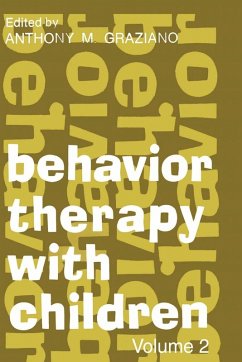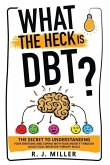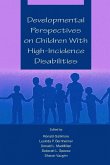Behavior Therapy with Children
Volume 2
Herausgeber: Graziano, Anthony M
Behavior Therapy with Children
Volume 2
Herausgeber: Graziano, Anthony M
- Broschiertes Buch
- Merkliste
- Auf die Merkliste
- Bewerten Bewerten
- Teilen
- Produkt teilen
- Produkterinnerung
- Produkterinnerung
The term behavior modification refers to the systematic analysis and change of human behavior and the principal focus is on overt behavior and its relationships to environmental variables
Andere Kunden interessierten sich auch für
![Play Therapy with Children and Adolescents in Crisis Play Therapy with Children and Adolescents in Crisis]() Play Therapy with Children and Adolescents in Crisis46,99 €
Play Therapy with Children and Adolescents in Crisis46,99 €![Deliberate Practice in Rational Emotive Behavior Therapy Deliberate Practice in Rational Emotive Behavior Therapy]() Mark D TerjesenDeliberate Practice in Rational Emotive Behavior Therapy51,99 €
Mark D TerjesenDeliberate Practice in Rational Emotive Behavior Therapy51,99 €![Behavioral Interventions in Cognitive Behavior Therapy Behavioral Interventions in Cognitive Behavior Therapy]() Richard F. FarmerBehavioral Interventions in Cognitive Behavior Therapy81,99 €
Richard F. FarmerBehavioral Interventions in Cognitive Behavior Therapy81,99 €![What The Heck Is DBT? The Secret To Understanding Your Emotions And Coping With Your Anxiety Through Dialectical Behavior Therapy Skills What The Heck Is DBT? The Secret To Understanding Your Emotions And Coping With Your Anxiety Through Dialectical Behavior Therapy Skills]() R J MillerWhat The Heck Is DBT? The Secret To Understanding Your Emotions And Coping With Your Anxiety Through Dialectical Behavior Therapy Skills18,99 €
R J MillerWhat The Heck Is DBT? The Secret To Understanding Your Emotions And Coping With Your Anxiety Through Dialectical Behavior Therapy Skills18,99 €![Developmental Perspectives on Children With High-incidence Disabilities Developmental Perspectives on Children With High-incidence Disabilities]() Developmental Perspectives on Children With High-incidence Disabilities89,99 €
Developmental Perspectives on Children With High-incidence Disabilities89,99 €![Emotions in Organizational Behavior Emotions in Organizational Behavior]() Emotions in Organizational Behavior86,99 €
Emotions in Organizational Behavior86,99 €![Encouraging Sustainable Behavior Encouraging Sustainable Behavior]() Encouraging Sustainable Behavior86,99 €
Encouraging Sustainable Behavior86,99 €-
-
-
The term behavior modification refers to the systematic analysis and change of human behavior and the principal focus is on overt behavior and its relationships to environmental variables
Hinweis: Dieser Artikel kann nur an eine deutsche Lieferadresse ausgeliefert werden.
Hinweis: Dieser Artikel kann nur an eine deutsche Lieferadresse ausgeliefert werden.
Produktdetails
- Produktdetails
- Verlag: Taylor & Francis Ltd (Sales)
- Seitenzahl: 654
- Erscheinungstermin: 1. Oktober 2008
- Englisch
- Abmessung: 229mm x 152mm x 34mm
- Gewicht: 862g
- ISBN-13: 9780202362830
- ISBN-10: 0202362833
- Artikelnr.: 23888563
- Herstellerkennzeichnung
- Libri GmbH
- Europaallee 1
- 36244 Bad Hersfeld
- gpsr@libri.de
- Verlag: Taylor & Francis Ltd (Sales)
- Seitenzahl: 654
- Erscheinungstermin: 1. Oktober 2008
- Englisch
- Abmessung: 229mm x 152mm x 34mm
- Gewicht: 862g
- ISBN-13: 9780202362830
- ISBN-10: 0202362833
- Artikelnr.: 23888563
- Herstellerkennzeichnung
- Libri GmbH
- Europaallee 1
- 36244 Bad Hersfeld
- gpsr@libri.de
Anthony Graziano
Introduction: Behavior Therapy with Children
I: Value Conflicts: Behavior Modification in Natural Settings
1: The End of Ideology in Behavior Modification
2: Social Psychology of Behavior Modification: Problems of Implementation in Natural Settings
3: Tangible Reinforcers: Bonuses or Bribes?
4: Parent and Therapist Evaluation of Behavior Therapy in a Child Psychological Clinic
II: Behavioral Approaches to Mental Retardation
5: Issues in Behavior Modification with Mentally Retarded Persons
6: Identifying and Modifying Behavioral Deficits
7: Social Reinforcement of Weight Reduction: A Case Report on an Obese Retarded Adolescent
8: Use of Punishment Procedures with the Severely Retarded: A Review
9: Relative Effectiveness of Behavioral and Reflective Group Counseling with Parents of Mentally Retarded Children
III: Modification of Psychotic Behavior
10: Treatment of Psychotic Children in a Classroom Environment: I. Learning in a Large Group
11: Naturalistic Treatment of an Autistic Child
12: Treatment Effects of a Total Behavior Modification Program with Five Autistic Children
IV: Self-Stimulatory Behavior
13: The Efficacy of Time-out Procedures in a Variety of Behavior Problems
14: The Elimination of the Self Destructive Behavior of a Psychotic Child: A Case Study
15: The Elimination of Autistic Self Stimulatory Behavior by Overcorrection
V: Behavioral Approaches to Somatic Systems
16: The Elimination of Chronic Cough by Response Suppression Shaping
17: Application of Conditioning Principles to Problems of Tracheostomy Addiction in Children
18: Dry Pants: A Rapid Method of Toilet Training Children
19: The Treatment of Childhood Encopresis by Conditioned Gastro-ileal ReHex Training
VI: Reduction of Children's Fears
20: Systematic Desensitization, Muscle Relaxation and Visual Imagery in the Counter-Conditioning of a Four-Year-Old Phobic Child
21: Automated Direct Deconditioning of a Childhood Phobia
22: Reduction of Children's Fear of the Dark by Competence-Related and Situational Threat-Related Verbal Cues
Aggressive and Antisocial Behavior
23: Studies of Behavior Modification and Juvenile Delinquency: A Review, Methodological Critique, and Social Perspective
24: The Buddy System: Relationship and Contingency Conditions in a Community Intervention Program for Youth with Nonprofessionals as Behavior Change Agents
25: Achievement Place: Development of the Elected Manager System
26: Short-term Behavioral Intervention with Delinquent Families: Impact on Family Process and Recidivism
Behavioral Interventions in Schools
27: Generalization of Operant Classroom Control Procedures
28: The Modification of Sentence Structure and its Relationship to Subjective Judgments of Creativity in Writing
29: Relative Efficacy of Modeling, Shaping, and the Combined Procedures for Modification of Social Withdrawal
30: Eliminating Discipline Problems by Strengthening Academic Performance
Family Systems
31: Training Parents as Behavior Therapists: A Review
32: Adverse Effects of Differentia] Parental Attention
33: Elimination of Bedtime Thumbsucking in Home Settings through Contingent Reading
34: Modification of Behavior Problems in the Home with a Parent as Observer and Experimenter
35: Accountability in Psychotherapy: A Test Case
10: Self-Control
36: Self-Management Projects with Children with Behavioral Disabilities
37: Teaching Self-Control to Disruptive Children
38: Treatment of Insomnia in an Eleven-Year-Old Child Through Self-Relaxation
39: A Variation of Thought-Stopping in a Twelve-year-old Boy: A Case Report
I: Value Conflicts: Behavior Modification in Natural Settings
1: The End of Ideology in Behavior Modification
2: Social Psychology of Behavior Modification: Problems of Implementation in Natural Settings
3: Tangible Reinforcers: Bonuses or Bribes?
4: Parent and Therapist Evaluation of Behavior Therapy in a Child Psychological Clinic
II: Behavioral Approaches to Mental Retardation
5: Issues in Behavior Modification with Mentally Retarded Persons
6: Identifying and Modifying Behavioral Deficits
7: Social Reinforcement of Weight Reduction: A Case Report on an Obese Retarded Adolescent
8: Use of Punishment Procedures with the Severely Retarded: A Review
9: Relative Effectiveness of Behavioral and Reflective Group Counseling with Parents of Mentally Retarded Children
III: Modification of Psychotic Behavior
10: Treatment of Psychotic Children in a Classroom Environment: I. Learning in a Large Group
11: Naturalistic Treatment of an Autistic Child
12: Treatment Effects of a Total Behavior Modification Program with Five Autistic Children
IV: Self-Stimulatory Behavior
13: The Efficacy of Time-out Procedures in a Variety of Behavior Problems
14: The Elimination of the Self Destructive Behavior of a Psychotic Child: A Case Study
15: The Elimination of Autistic Self Stimulatory Behavior by Overcorrection
V: Behavioral Approaches to Somatic Systems
16: The Elimination of Chronic Cough by Response Suppression Shaping
17: Application of Conditioning Principles to Problems of Tracheostomy Addiction in Children
18: Dry Pants: A Rapid Method of Toilet Training Children
19: The Treatment of Childhood Encopresis by Conditioned Gastro-ileal ReHex Training
VI: Reduction of Children's Fears
20: Systematic Desensitization, Muscle Relaxation and Visual Imagery in the Counter-Conditioning of a Four-Year-Old Phobic Child
21: Automated Direct Deconditioning of a Childhood Phobia
22: Reduction of Children's Fear of the Dark by Competence-Related and Situational Threat-Related Verbal Cues
Aggressive and Antisocial Behavior
23: Studies of Behavior Modification and Juvenile Delinquency: A Review, Methodological Critique, and Social Perspective
24: The Buddy System: Relationship and Contingency Conditions in a Community Intervention Program for Youth with Nonprofessionals as Behavior Change Agents
25: Achievement Place: Development of the Elected Manager System
26: Short-term Behavioral Intervention with Delinquent Families: Impact on Family Process and Recidivism
Behavioral Interventions in Schools
27: Generalization of Operant Classroom Control Procedures
28: The Modification of Sentence Structure and its Relationship to Subjective Judgments of Creativity in Writing
29: Relative Efficacy of Modeling, Shaping, and the Combined Procedures for Modification of Social Withdrawal
30: Eliminating Discipline Problems by Strengthening Academic Performance
Family Systems
31: Training Parents as Behavior Therapists: A Review
32: Adverse Effects of Differentia] Parental Attention
33: Elimination of Bedtime Thumbsucking in Home Settings through Contingent Reading
34: Modification of Behavior Problems in the Home with a Parent as Observer and Experimenter
35: Accountability in Psychotherapy: A Test Case
10: Self-Control
36: Self-Management Projects with Children with Behavioral Disabilities
37: Teaching Self-Control to Disruptive Children
38: Treatment of Insomnia in an Eleven-Year-Old Child Through Self-Relaxation
39: A Variation of Thought-Stopping in a Twelve-year-old Boy: A Case Report
Introduction: Behavior Therapy with Children
I: Value Conflicts: Behavior Modification in Natural Settings
1: The End of Ideology in Behavior Modification
2: Social Psychology of Behavior Modification: Problems of Implementation in Natural Settings
3: Tangible Reinforcers: Bonuses or Bribes?
4: Parent and Therapist Evaluation of Behavior Therapy in a Child Psychological Clinic
II: Behavioral Approaches to Mental Retardation
5: Issues in Behavior Modification with Mentally Retarded Persons
6: Identifying and Modifying Behavioral Deficits
7: Social Reinforcement of Weight Reduction: A Case Report on an Obese Retarded Adolescent
8: Use of Punishment Procedures with the Severely Retarded: A Review
9: Relative Effectiveness of Behavioral and Reflective Group Counseling with Parents of Mentally Retarded Children
III: Modification of Psychotic Behavior
10: Treatment of Psychotic Children in a Classroom Environment: I. Learning in a Large Group
11: Naturalistic Treatment of an Autistic Child
12: Treatment Effects of a Total Behavior Modification Program with Five Autistic Children
IV: Self-Stimulatory Behavior
13: The Efficacy of Time-out Procedures in a Variety of Behavior Problems
14: The Elimination of the Self Destructive Behavior of a Psychotic Child: A Case Study
15: The Elimination of Autistic Self Stimulatory Behavior by Overcorrection
V: Behavioral Approaches to Somatic Systems
16: The Elimination of Chronic Cough by Response Suppression Shaping
17: Application of Conditioning Principles to Problems of Tracheostomy Addiction in Children
18: Dry Pants: A Rapid Method of Toilet Training Children
19: The Treatment of Childhood Encopresis by Conditioned Gastro-ileal ReHex Training
VI: Reduction of Children's Fears
20: Systematic Desensitization, Muscle Relaxation and Visual Imagery in the Counter-Conditioning of a Four-Year-Old Phobic Child
21: Automated Direct Deconditioning of a Childhood Phobia
22: Reduction of Children's Fear of the Dark by Competence-Related and Situational Threat-Related Verbal Cues
Aggressive and Antisocial Behavior
23: Studies of Behavior Modification and Juvenile Delinquency: A Review, Methodological Critique, and Social Perspective
24: The Buddy System: Relationship and Contingency Conditions in a Community Intervention Program for Youth with Nonprofessionals as Behavior Change Agents
25: Achievement Place: Development of the Elected Manager System
26: Short-term Behavioral Intervention with Delinquent Families: Impact on Family Process and Recidivism
Behavioral Interventions in Schools
27: Generalization of Operant Classroom Control Procedures
28: The Modification of Sentence Structure and its Relationship to Subjective Judgments of Creativity in Writing
29: Relative Efficacy of Modeling, Shaping, and the Combined Procedures for Modification of Social Withdrawal
30: Eliminating Discipline Problems by Strengthening Academic Performance
Family Systems
31: Training Parents as Behavior Therapists: A Review
32: Adverse Effects of Differentia] Parental Attention
33: Elimination of Bedtime Thumbsucking in Home Settings through Contingent Reading
34: Modification of Behavior Problems in the Home with a Parent as Observer and Experimenter
35: Accountability in Psychotherapy: A Test Case
10: Self-Control
36: Self-Management Projects with Children with Behavioral Disabilities
37: Teaching Self-Control to Disruptive Children
38: Treatment of Insomnia in an Eleven-Year-Old Child Through Self-Relaxation
39: A Variation of Thought-Stopping in a Twelve-year-old Boy: A Case Report
I: Value Conflicts: Behavior Modification in Natural Settings
1: The End of Ideology in Behavior Modification
2: Social Psychology of Behavior Modification: Problems of Implementation in Natural Settings
3: Tangible Reinforcers: Bonuses or Bribes?
4: Parent and Therapist Evaluation of Behavior Therapy in a Child Psychological Clinic
II: Behavioral Approaches to Mental Retardation
5: Issues in Behavior Modification with Mentally Retarded Persons
6: Identifying and Modifying Behavioral Deficits
7: Social Reinforcement of Weight Reduction: A Case Report on an Obese Retarded Adolescent
8: Use of Punishment Procedures with the Severely Retarded: A Review
9: Relative Effectiveness of Behavioral and Reflective Group Counseling with Parents of Mentally Retarded Children
III: Modification of Psychotic Behavior
10: Treatment of Psychotic Children in a Classroom Environment: I. Learning in a Large Group
11: Naturalistic Treatment of an Autistic Child
12: Treatment Effects of a Total Behavior Modification Program with Five Autistic Children
IV: Self-Stimulatory Behavior
13: The Efficacy of Time-out Procedures in a Variety of Behavior Problems
14: The Elimination of the Self Destructive Behavior of a Psychotic Child: A Case Study
15: The Elimination of Autistic Self Stimulatory Behavior by Overcorrection
V: Behavioral Approaches to Somatic Systems
16: The Elimination of Chronic Cough by Response Suppression Shaping
17: Application of Conditioning Principles to Problems of Tracheostomy Addiction in Children
18: Dry Pants: A Rapid Method of Toilet Training Children
19: The Treatment of Childhood Encopresis by Conditioned Gastro-ileal ReHex Training
VI: Reduction of Children's Fears
20: Systematic Desensitization, Muscle Relaxation and Visual Imagery in the Counter-Conditioning of a Four-Year-Old Phobic Child
21: Automated Direct Deconditioning of a Childhood Phobia
22: Reduction of Children's Fear of the Dark by Competence-Related and Situational Threat-Related Verbal Cues
Aggressive and Antisocial Behavior
23: Studies of Behavior Modification and Juvenile Delinquency: A Review, Methodological Critique, and Social Perspective
24: The Buddy System: Relationship and Contingency Conditions in a Community Intervention Program for Youth with Nonprofessionals as Behavior Change Agents
25: Achievement Place: Development of the Elected Manager System
26: Short-term Behavioral Intervention with Delinquent Families: Impact on Family Process and Recidivism
Behavioral Interventions in Schools
27: Generalization of Operant Classroom Control Procedures
28: The Modification of Sentence Structure and its Relationship to Subjective Judgments of Creativity in Writing
29: Relative Efficacy of Modeling, Shaping, and the Combined Procedures for Modification of Social Withdrawal
30: Eliminating Discipline Problems by Strengthening Academic Performance
Family Systems
31: Training Parents as Behavior Therapists: A Review
32: Adverse Effects of Differentia] Parental Attention
33: Elimination of Bedtime Thumbsucking in Home Settings through Contingent Reading
34: Modification of Behavior Problems in the Home with a Parent as Observer and Experimenter
35: Accountability in Psychotherapy: A Test Case
10: Self-Control
36: Self-Management Projects with Children with Behavioral Disabilities
37: Teaching Self-Control to Disruptive Children
38: Treatment of Insomnia in an Eleven-Year-Old Child Through Self-Relaxation
39: A Variation of Thought-Stopping in a Twelve-year-old Boy: A Case Report








